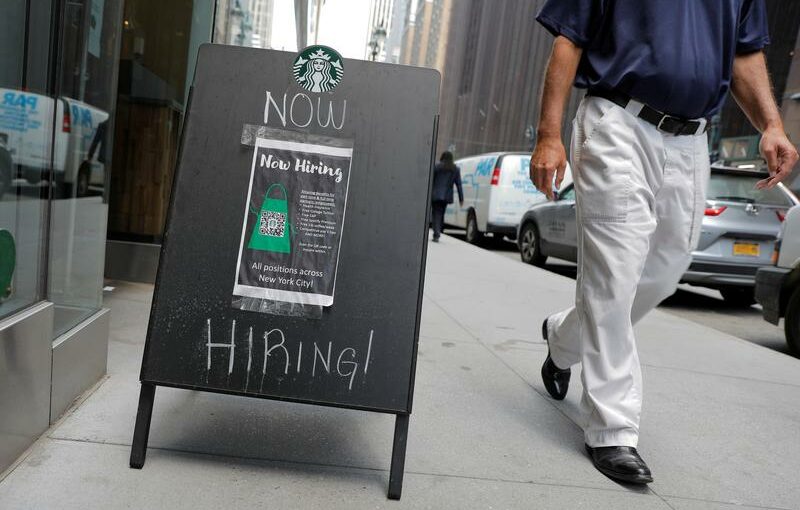WASHINGTON (Reuters) – Ongoing claims for U.S. unemployment insurance have dipped faster in recent weeks in states ending federal benefits this summer than in states keeping the $300 weekly supplement in place until the fall, according to government data through last week.
From the week ending May 1 through the week ending June 12, continuing claims for state unemployment benefits fell 17.8% in the 26 states ending benefits early, to 990,000, and by 12.6%, to 2.18 million, in the rest of the country, according to a Reuters analysis of weekly federal unemployment data.
The data do not yet answer the larger and arguably more important question of whether hiring will also accelerate in those states, the outcome an almost all-Republican group of governors says is the goal of cutting the benefits early.
Weekly data from small business time provider Homebase through the week ending June 20 in fact has shown no pickup in hiring in the states cancelling unemployment benefits. To the contrary the other states appear to have added jobs faster in recent weeks – a possible consequence of the fact that large Democratic-led states like California and New York have recently lifted most of the remaining restrictions put in place to fight the pandemic.
The states stopping benefits as a group have also pulled closer to their pre-pandemic levels of unemployment, suggesting less room for improvement.
(Graphic: Unemployment benefits and hiring, )
The issue of how unemployment benefits are impacting the recovery of the U.S. job market has become a core concern among Federal Reserve and other policymakers as they try to determine how fast national employment might rebound to pre-pandemic levels, a judgment hard to make until the economy is fully reopened and benefit levels returned to normal.
Twelve states have already halted benefits in what has been a largely partisan split between Republican governors arguing that the pandemic emergency unemployment payments are now discouraging people from working, and Democratic governors who feel people still need support as the pandemic wanes.
(Graphic: A (mostly) red state roll off, )
The states stopping benefits early include the entire Deep South, where pandemic unemployment has fallen hard on the large Black population, but only one state, Louisiana, with a Democratic governor. Only two Republican-led states, Vermont and Massachusetts in the Northeast, plan to continue the payments until they end nationwide in September.
The data overall suggest “more downward momentum in initial and continuing claims over the next few weeks,” said Jefferies economist Thomas Simons. Sky-high unemployment claims have been a hallmark of the pandemic, topping 23 million at one point in the spring of 2020 as the coronavirus took hold, more than 10 times the level at the start of the year.
Source: Read Full Article
